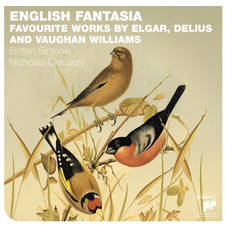Smetana - Má Vlast
Smetana's Má Vlast composed between 1874-1879 proves he is a master of the symphonic poem: a descriptive, single-movement orchestral piece, telling a story, painting a musical picture, or conveying a certain landscape.
At over an hour long, Má Vlast is a mighty work, comprising six poems in total; but its popularity is due mainly to the second one, Vltava – a beautiful, evocative musical painting of the rolling river that passes through the city of Prague. Listen for the ebbing and flowing woodwind passages dancing alongside the persistent, driving strings, creating a wonderful sense of movement along various parts of the river. During the journey we encounter a hunt, a wedding party and even some water nymphs.
Much is understandably made of Beethoven’s deafness – but what many people forget is that the same loss of hearing befell Smetana. Very soon after starting work on Má Vlast he was to become completely deaf. Consequently, the vast majority of this music existed only in his head, and he never heard it performed by an orchestra.




